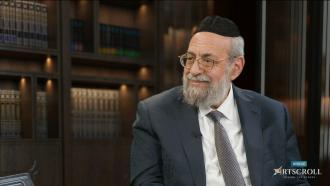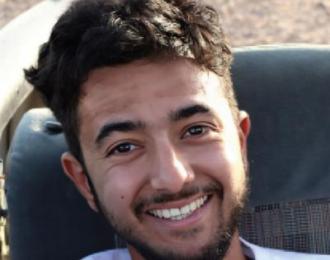The head of a prominent Israeli think tank said on Tuesday that optimism among politicians and IDF brass in relation to next week’s peace negotiations in Kazakhstan to end the Syrian civil war was “warranted but exaggerated.”
Prof. Efraim Karsh, director of the Begin-Sadat Center for Strategic Studies at Bar-Ilan University, was responding to a report in the London-based pan-Arab daily Asharq al-Awsat claiming that Israel is confidant that its interests will be represented at the Astana summit by Russia. According to the report, by Tel Aviv correspondent Nazir Majli, this sense of security was born out of the “positive relations” between Russian President Vladimir Putin and Israeli Prime Minister Benjamin Netanyahu, and the IDF’s unfettered ability to target Hezbollah weapons convoys in Syria headed for the terrorist organization’s base in Lebanon. Though Israel has neither confirmed nor denied its involvement in a number of such strikes, they are widely believed to have been carried out by the IDF.
Majili also asserted: “Sources added that Israel wasn’t invited to this conference, but it is making sure that its presence is felt there through all possible channels, and thus conveying a message that no agreement can be reached, especially concerning Golan Heights, without taking Israeli interests into account.”
“Putin basically wants stability in the region to serve his own interests,” Karsh told The Algemeiner. “In this sense, he has been taking Israel’s into account. He would prefer a Middle East without ISIS and other forms of radical Islam — and to be able to have influence in Syria in other ways than taking part in its war against insurgents. He does not want escalation of tensions between Hezbollah and Israel for the same reason.”
Karsh said that the argument over Russia’s aims is “a long-standing one,” with figures eminent historians like Walter Laqueur having claimed that Moscow actually prefers instability in the region to show the Arabs it is in control.
“But I don’t hold with that assessment,” Karsh said, “I believe that Putin is afraid of unrest, because it causes other countries, particularly the United States, to get involved.”
Asked how this jibes with the fact that it was precisely the vacuum left by outgoing US President Barack Obama that enabled Putin to establish a stronghold, Karsh said, “That’s true, but not everything Putin does makes sense. He is often self-defeating. For example, he is being foolish by providing Iran with missiles. If Iran gets nuclear weapons, Russia, which is nearby, will be seriously endangered. In fact, Putin should have wanted to block the nuclear deal with Tehran.”
However, Karsh said, “Putin is not like his predecessors. For one thing, he is not an antisemite, which makes some difference where Israel is concerned.”
Though Israel has tried to keep out of the internal Syria quagmire — due mainly to the fact that most parties to it are openly hostile to the Jewish state — it has been following events across its border very carefully, retaliating against occasional “errant fire,” allegedly striking Hezbollah targets and quietly treating wounded victims in both field and regular hospitals.
In an interview with The Algemeiner in November, former Israeli Ambassador to Russia Zvi Magen — a researcher at the Institute for National Security Studies in Tel Aviv — said that Russia doesn’t consider it problematic or contradictory to strengthen ties with Israel while backing the regime in Syria or engaging in “multi-sectoral relations” with Iran, the Palestinians and other Muslim states.
As fighting continues in Syria, despite a Russian-Turkish-brokered ceasefire that ostensibly went into effect at the end of December, preparations are underway for the talks in the Kazakhstani capital, slated for January 23. Earlier this month, sources in Lebanon told the London-based pan-Arab daily Al-Arab that Hezbollah had rejected the ceasefire agreement over Ankara’s clause in the document requiring all foreign forces to withdraw from Syria before a diplomatic solution is reached or even discussed.
According to Reuters, Syrian rebel groups have decided to attend the talks in Astana to press for full implementation of a ceasefire they say has been widely violated by the government and its Iranian-backed allies. It is not clear whether Hezbollah will be participating.

















